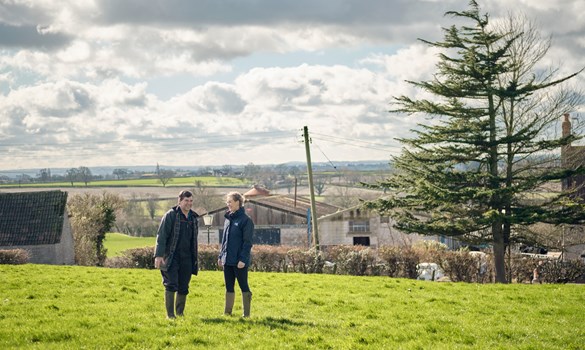Dispelling the myths about carbon sequestration
Webinar recording
Join us for a webinar to understand more about carbon sequestration on your farm. Learn about practical ways of increasing carbon storage and managing your soils effectively.
Based at Bridge Farm in Somerset, strategic dairy farmer David Cotton will share the measures he has taken to improve carbon storage and explore opportunities for the future.
You’ll also hear from Harley Stoddart AHDB Senior Environment Scientist about the facts behind carbon capture and storage, focussing on soil management practices to build soil organic matter and the role of trees and hedgerows.
And Sarah Bolt, Kingshay’s membership development manager, will take you through the results from Kingshay’s recent soil organic carbon research project which looked at soil organic carbon and soil management for 100 grassland fields across the country.
In the meeting you will learn:
- How Bridge Farm has addressed carbon sequestration
- How to improve soil organic carbon levels
- About Kingshay’s soil organic carbon research results
- The facts about carbon sequestration and storage
- The link between profitable farming and carbon efficiency
We want to make the session as interactive as possible, so we’d invite you to sign up and share your experience and raise questions for discussion.
Who should attend this webinar?
Anyone interested in finding out more about Carbon sequestration and soil management.
For further information contact Bryan Nicholson on 07976 181103 or Bryan.nicholson@ahdb.org.uk
About Bridge Farm
Bridge Farm is owned and operated by David and Lene Cotton in partnership with David's parents. The herd manager, Steve Crowther has been employed for 9 years and Chris Glass, with the business for 18 years, is a general farm worker shared between the dairy business and a friend's arable business.
Based near Glastonbury, Somerset, Bridge farm is 236Ha, of which 193Ha are owned and 43Ha are tenanted. The farm consists of 200Ha of grass (mixed permanent pasture and rotational) and 24Ha of Winter Wheat which is used to provide feed and straw for both the dairy and beef enterprises. Other enterprises include a campsite and office buildings rented out.
The herd is currently made up of 280 pedigree Holstein Fresian, autumn calving cows. Achieving 7932 litres of milk per cow per year with 4.3% fat and 3.47% protein mix, milking twice per day and grazing from April through to October. All replacements are reared at home with an average age at first calving of 25 months.
Our journey has seen an increased focus on fertility since becoming an autumn block calving herd. The neighbouring farm, purchased in 2016, has allowed the opportunity for expansion. The integration of this with Bridge farm bringing both operation together efficiently will be the major area of focus for the next three years. Development of staff and training is a passion for David which he hopes to continue to build on.
Learn more about Bridge Farm...
About Strategic Dairy Farms
Strategic dairy farms help farmers learn from each other through regular on-farm meetings where we share key performance data and showcase what the best farmers are doing.
They form part of the Optimal Dairy Systems programme which aims to help dairy farmer’s lower costs and increase efficiency by focusing on either a block or all-year-round calving system.
The growing network of strategic dairy farms have calculated key performance indicators (KPIs) for their enterprises which are shared at meetings and published online. These are physical and financial performance measures that are critical to success. Farmers can benchmark their businesses against these KPIs and identify areas for improvement.
Explore our other strategic dairy farms...
Topics:
Sectors:
If you have any questions about this event, please contact us using the details below.
T 01904 771216


